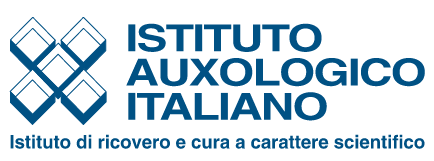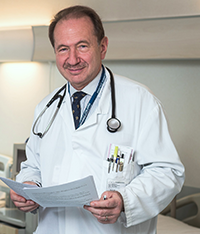
INSTITUTION NAME
IRCCS Auxologico
PHONE
02 619112237
ADDRESS
Via L. Ariosto 13, 20145 Milano
EMAIL
dir.sci@auxologico.it
FOUNDATION YEAR
1958
SCOPE
Study and treatment of diseases:
– cerebro-cardiovascular
– neurodegenerative
– endocrine-metabolic
– immunological and aging.

Prof. G.Parati
The Istituto Auxologico Italiano is a non-profit organization, recognized as Foundation (1963) as well as Scientific Hospitalization and Care Institute (IRCCS) (1972). Since its origins in 1958, Auxologico has been active in the sectors of biomedical research and highly specialized health care aiming to high level scientific research and updated patient care activities through hospitals, clinics and research centers distributed in Italy (Lombardy, Piedmont, Lazio) and in Romania (Bucharest).
Over the years, the Institute’s care and research activity has focused on chronic non-communicable diseases, recognized by the World Health Organization as one of the main responsible for the highest morbidity and mortality in the world.
The Institute addresses them, both in the field of research and (in that of ) health care assistance, analyzing all the aspects related to prevention, diagnosis, treatment (both in the acute and chronic phases) and finally to rehabilitation with a specific focus on cerebrovascular, neurological and endocrine -metabolic, immunological diseases and aging.
In this context, the surgical aspects of health assistance and research have also been developed in the field of chronic diseases, particularly frequent and serious in the elderly, with particular attention to vascular surgery, to endocrine-metabolic and digestive surgery, to prosthetic orthopedics, to ophthalmology and urology, especially in the elderly male.
In addition, the Institute combines the use of sophisticated multimodal diagnostic methodologies integrated with the application of Virtual Reality for the development of innovative assessment and treatment protocols for the frail elderly aimed at motor and cognitive rehabilitation both in hospital and at home with non-immersive techniques.
© RETE AGING IRCCS – VIA S.Margherita, 5 – 60123 ANCONA – CF 93160330424